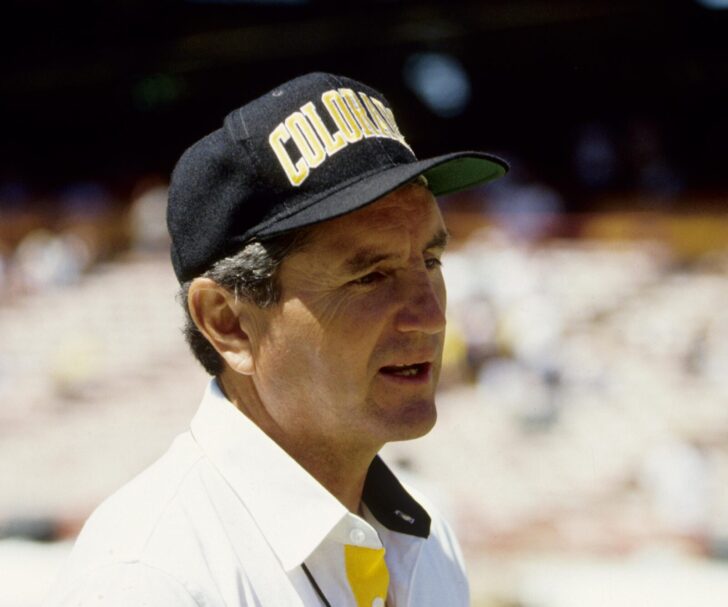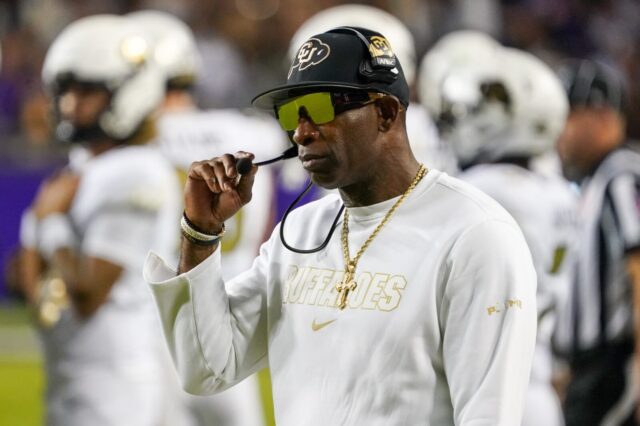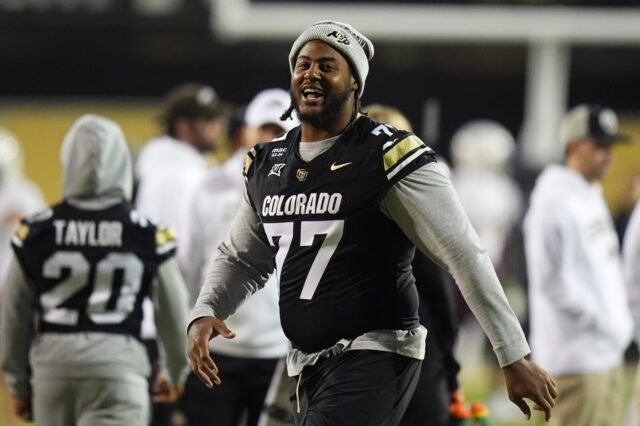Strike 2: There was some inevitable sad news that came out just as the Broncos were about to play that first playoff game in almost a decade. The head coach who actually did bring Colorado Buffaloes football out of the college football doldrums and into national prominence, Bill McCartney, passed away at the age of 84 after a long illness.
Long ago, CU football had some great years, including a No. 3 final ranking in the national polls back in 1971, under then-head coach Eddie Crowder. But times had gotten lean after the ill-fated decision to hire Chuck Fairbanks following the 1978 season. Unlike the (too) much maligned Karl Dorrell/Mike Sanford Buffs who went 1-11 in 2022 – facing arguably the toughest schedule in America that year – Fairbanks teams’ lost back-to-back seasons to Drake University. The former Oklahoma and New England Patriots coach went 3-8, 1-10 and 3-8 in three lousy seasons in Boulder. And as a side note, Drake stopped giving out football scholarships just a few years later.
McCartney entered the picture following the true lowest point in CU football history.
The former Michigan assistant replaced Fairbanks and after three difficult seasons of his own (he didn’t have a transfer portal to turn to) finally led CU to the top of the old Big Eight, going toe-to-toe with conference giants Nebraska and Oklahoma at a time when both programs were at or near their heights. That kind of year-in and year-out consistency, battling for conference and even national supremacy, hasn’t been accomplished at CU since former McCartney assistant Gary Barnett was foolishly fired after the 2006 season.
So, if you were starting a Mount Rushmore of college football coaches in the state of Colorado, Bill McCartney – who led CU to their only share of a national championship in 1990 and is a member of the College Football Hall of Fame – would be at the top of that list.
Who would join him?
Buff fans can make a case for Crowder, who coached CU from 1963-1973, won 67 games and three times finished ranked in the final polls. He also hired McCartney after the 1981 season when he was CU’s athletic director. Barnett had a lot of success as well, although expectations for him were so high that the public view of his tenure isn’t judged fairly. Hard to see anyone else who’s coached the Buffs making our Mount Rushmore short list.
A spot should also be reserved for former Colorado State coach Sonny Lubick, who led the Rams through their greatest era of football ever. Prior to Lubick taking the reins in Fort Collins (he followed the chaos of the Earl Bruce tenure, which ended with a 5-7 season in 1992) CSU had recorded just seven winning seasons since 1960. The former Miami defensive coordinator turned all that around in a hurry. In his second season in the Fort, Lubick’s Rams won the Western Athletic Conference title and went to the Holiday Bowl. Lubick was named National Coach of the Year by Sports Illustrated.
In 15 seasons as the head coach of the Rams, Sonny ended up with 108 wins, six conference titles and nine bowl appearances. He’s a lock for the Mount.
The third spot? While current Air Force coach Troy Calhoun has done a magnificent job during his 18 seasons in Colorado Springs, the best coach ever at the Academy was his predecessor, Fisher DeBerry. DeBerry coached AFA for 23 seasons, winning 169 games, three WAC championships, six bowl games and three WAC Coach of the Year awards. He was the consensus National Coach of the Year in 1985. Like McCartney, he’s a member of the College Football Hall of Fame.
Calhoun may end up challenging DeBerry for the best ever at AFA, but he’s not there just yet.
So that’s three spots are secure. Crowder, Barnett or Calhoun may be the fourth, or maybe its former Northern Colorado and Wyoming coach Joe Glenn? Glenn has a so-so record as a Division I coach in Laramie, but his tenure at UNC is unmatched.
Under Glenn, UNC won a pair of Division II national championships in 1996 and ’97. During his 11 seasons in Greeley, the Bears went 98-35. Following three highly successful seasons at Montana, Glenn was just 30-41 at Wyo., but did lead the Cowboys to a win in the Las Vegas Bowl in 2004. Including four seasons at South Dakota after that, Glenn totaled 200 wins for his coaching career. He won the Eddie Robinson Award after the 2000 season.
Given the struggles of UNC football since he left (and the program moved up to Division I FCS status) Joe Glenn looks like the best candidate for the fourth stone carved image.
College football is a much different game now than it was in the heyday of McCartney, Lubick, DeBerry and Glenn. There were no quick fixes available back then, no way to jettison players from the previous coaching staff or pay high profile guys to transfer in. Some of what today’s coaches go through is more difficult than it used to be, but it’s still hard to see today’s coaches succeeding to that degree the “old school” way, either.





